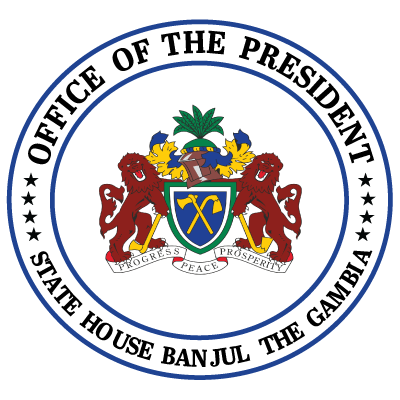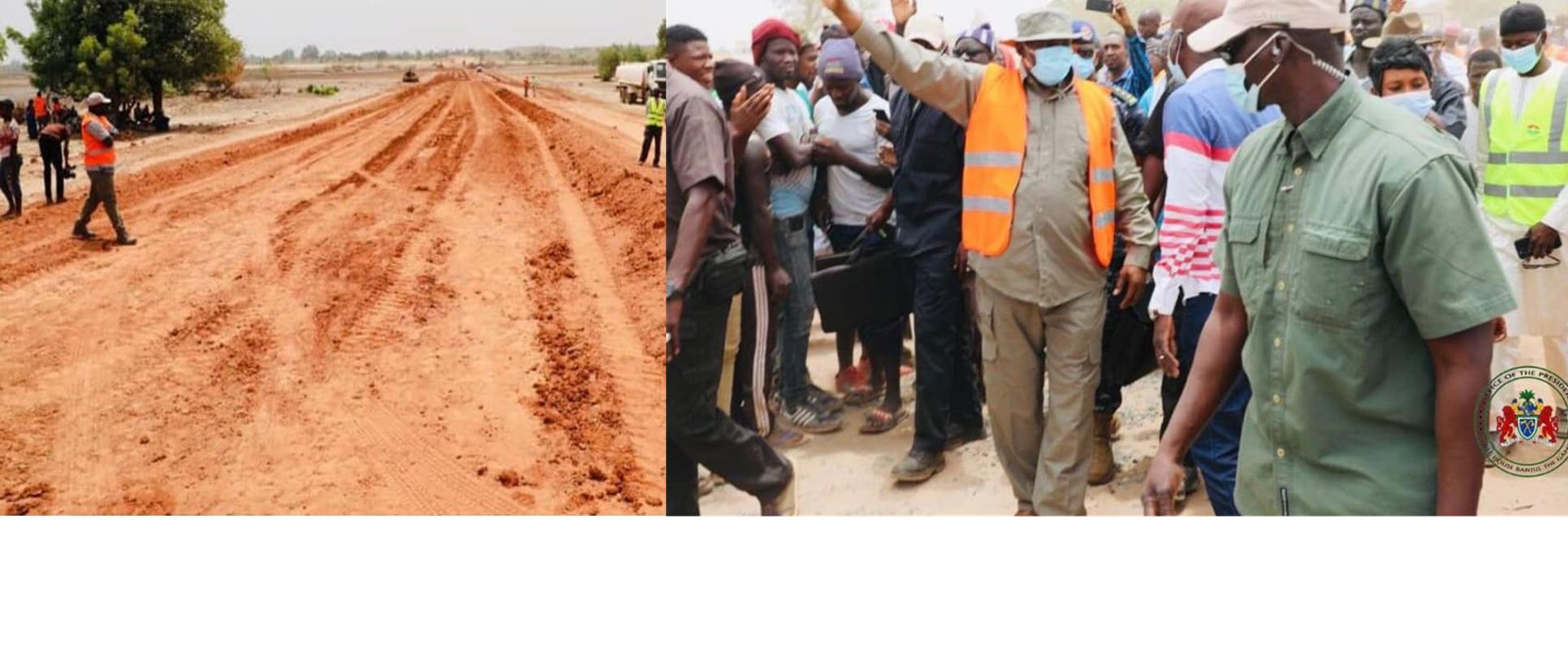President Adama Barrow on Thursday embarked on a monitoring tour of the ongoing Road construction projects in CRR North and the North Bank Regions. The tour is in line with ensuring the acceleration of implementation processes of the National Development priorities identified in the National Development Plan (NDP) 2018-2021.
The maintenance and completion of the national road networks and expansion of secondary feeder roads for improved access in the rural areas is a key component of the NDP priority 5.
The Presidential convoy made a quick stop at the Arezki Camp, where the President had a closed-door meeting with the Consultants and Contractors, the Governor of the Lower River Region, Madam, Rohey John Manjang, the Minister for Transport Works and Infrastructure Honourable Bai Lamin Jobe, as well as other critical stakeholders.
The President was briefed on the processes involved and the state of mobilization for work to commence in earnest in parts of the project sites.
President Barrow proceeded to inspect the work progress of the ongoing road construction linking Kerr Jibi, Sare Auldi, Baati Ndarr and Njaw in CRR North, the 8.9km Kaur-Jimbala road, and the 86km Sara Kunda-Bambali road all in the CRR North.
Speaking to the Resident Engineer of the Kaur-Jimbala project Mr Mass Faye, President Barrow urged the team to expedite the works as the people of Kaur-Jimbala have waited for 50 years to have access to roads that will transform their socio-economic lives. The President expressed that his Government is committed to making sure that projects receive the requisite support to complete implementation within the given timeframes.
The final stop of the President’s monitoring tour also took him to the 86km Nuimi-Hakalang Road in the North Bank Region, where work is progressing. President Barrow was welcomed by a cheering crowd who were hopeful and excited about the changes the project will bring to their communities.
The tour served as an opportunity for the President to make a first-hand assessment of implementation progress and also availed the Presidency and stakeholders the opportunity to collectively assess the challenges.

